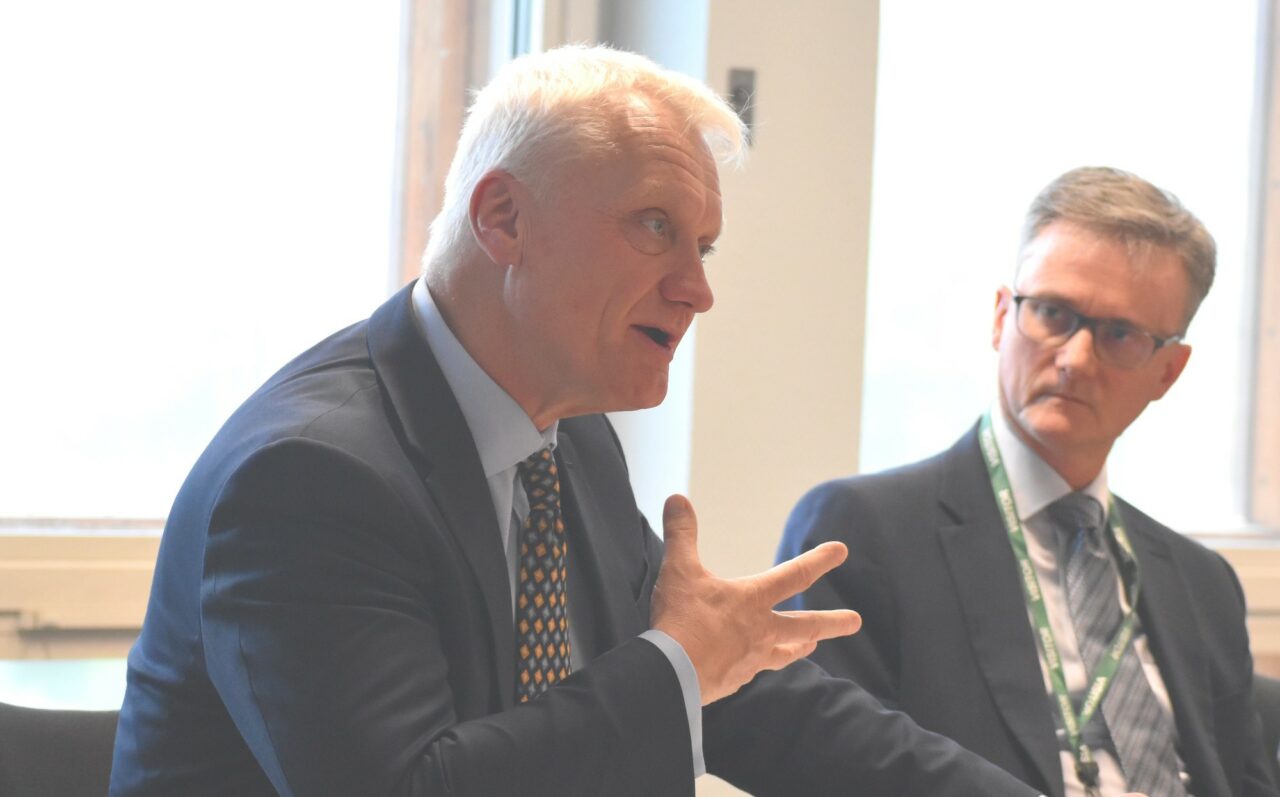
Graham Stuart (left) and Chris Hewett (right). Image: Solar Energy UK.
The launch of today’s Solar Taskforce, jointly chaired by Solar Energy UK and Graham Stuart MP, minister of state for energy security and net zero, marks a step change in UK government engagement with the solar industry.
For the first time, leading industry players, from utility-scale and rooftop sectors, ministers and senior government officials will be sitting around a table to plan the path towards a five-fold increase in solar capacity to 70GW by 2035. The group will meet between now and spring 2024, focused on unlocking the barriers that industry has identified, most notably speeding up grid connections and ensuring that there are sufficient skilled professionals available to scale activity.
Solar Energy UK and its members will be joined on the Taskforce by MCS, the Energy Networks Association and the UK Infrastructure Bank, all of which will have a major role to play in delivering the expansion in solar needed over the next decade.
Alongside the Taskforce itself, there will be sub-groups where more industry representatives and stakeholders will get to grips with the details. Finally, Solar Energy UK will be using its own working groups and steering groups to feed in the views of the wider industry.
I have to confess this all feels remarkably grown up when compared to the ill-informed political and media debates of last summer and autumn over whether solar farms are a threat to food security. There are still some politicians that hold that view, though it is no longer influential. This is underlined by the fact that land use is not a topic being discussed by the Taskforce.
The Government (and all opposition parties) are now firmly focused on how quickly the country can deploy the most popular and lowest cost energy source available: solar. This has to be on rooftops (large and small) and via solar farms. Crucially, it must be backed up by a similar expansion of energy storage.
A Taskforce can, of course, be a classic way for Governments to delay taking decisions. It is vital that we are not just setting up a talking shop and Solar Energy UK will be the first to call this out, if that appears to be happening.
By assembling a collection of industry leaders who are champing at the bit to get things done, ministers are setting expectations of action which we will hold them to. A few quick wins along the way will be vital, as they will also be faced by shadow ministers, with big ambitions for solar, ready and willing to criticise any perceived delays. Like any good trade association, we will be in dialogue with all sides as we come towards a general election.
This is a significant opportunity to accelerate action and unlock structural barriers to our technology. We all know what they are and Solar Energy UK will be focused on delivering those changes.
This article was written by Chris Hewett, chief executive of Solar Energy UK and co-chair of the Joint Government/Industry Solar Taskforce.
